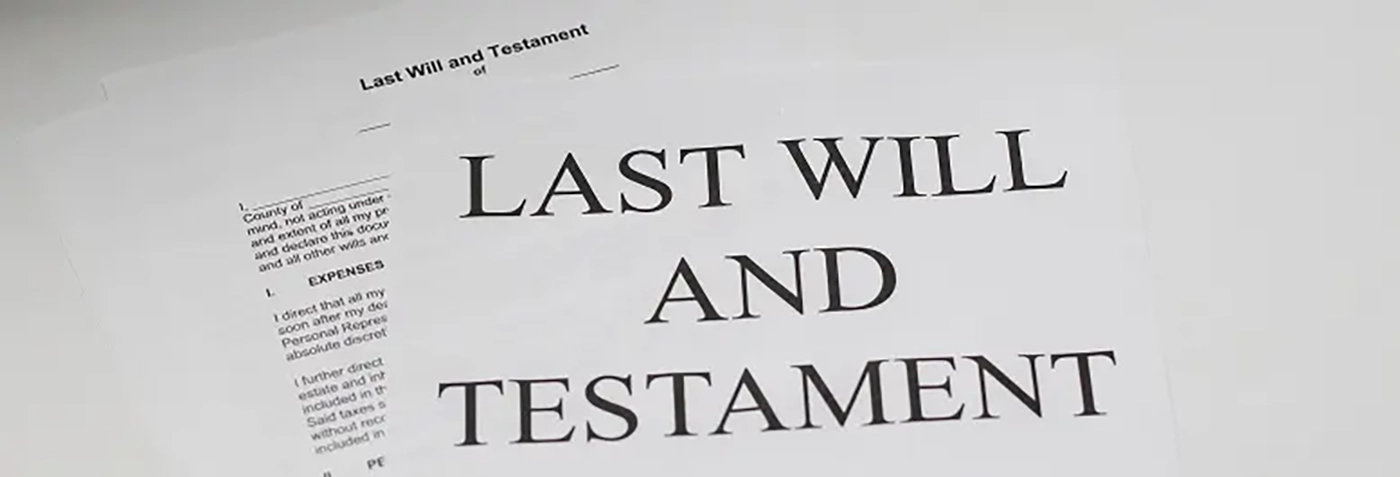
When a person passes away, the death certificate and last will are submitted to the county probate court. A person representative begins the process of passing assets along as the will directs — except when other valid legal instruments have priority. One of those instruments is the all-important real estate deed.
Houses can be left to their owners’ chosen beneficiaries through wills. But when someone who co-owns a house passes away, questions may arise as to what the last will says versus what the deed says. In case of a conflict, does the last will get the last word? Short answer: probably not. The long answer starts with the way the title is vested.
Survivorship Rights Vs. Tenancies in Common
When an owner dies, a properly signed and recorded deed directs and channels the person’s property interest to its next owner, typically according to the following rules.
If the co-owners took title as joint tenants.
If the property is vested in a joint tenancy with rights of survivorship (for example, as “Jan and Loren Hill, joint tenants with the right of survivorship”), what Jan’s will says is irrelevant, because Loren as the joint tenant still owns the house when Jan passes, and gets Jan’s interest in the house. To clear title and formally effect the transfer, Loren, as the surviving co-owner, records the new deed with the county. This is done by submitting an affidavit that names Loren as the surviving owner and contains:
- A legal description of the property.
- A statement that the property was held in joint
tenancy, citing the document identification number for the prior deed. - A certified copy of Jan’s death certificate.
Note that a joint tenancy with rights of survivorship can be severed if one of the co-owners deeds all or part of that person’s ownership interest to another party, or puts it into a trust that differs from the vesting on the deed. A living trust can be used before death to transfer an interest in a joint tenancy to a chosen beneficiary. Conversely, a pour-over will can move property into a trust that its owner did not move into it while living.
Alert: Plan your house titling with care, especially in later marriages. Your surviving joint owner may remarry and share the home with a new spouse. A new family may eventually get the home, leaving out your children.
If the surviving co-owners took title as tenants by the entirety.
Another form or joint ownership with survivorship rights is the tenancy by the entirety. If your state recognizes this form of vesting for life partners, then the couple can enjoy joint ownership — plus more. This ownership shields each spouse from responsibility for the other’s debts. When one of the tenants by the entirety passes on, the surviving homeowner records an affidavit of survivorship along with the co-owner’s death certificate, and thereby receives full ownership of the home.
If the co-owners took title as tenants in common.
Spouses hold individual ownership interests as tenants in common. In this way, each one may hold a specific percentage of ownership (the house need not be owned 50-50), and each is free to bequeath their own interest to a third person.
In this form of vesting, what the will says matters. The home will go through probate. Yet it’s the deed, not the will, that actually conveys the house title into new ownership. Only when the personal representative of the deceased co-owner records a new deed does the title leave the estate.
If the surviving co-owner is a spouse in a community property state.
In a community property state, the will controls — except if rights of survivorship are expressly granted on the deed, as allowed in some community property states.
The bottom line: If there are rights of survivorship, the co-owner’s rights cannot simply be willed away. So, real property held by joint tenants with survivorship rights or tenants by the entirety bypasses the probate process. When a co-owner dies, the other co-owner automatically has rights of ownership. Property belonging to tenants in common, in contrast, goes through the probate process.
What to Know in States Adhering to the Uniform Probate Code
Its goal is to create a standard probate law across the nation, and the Uniform Probate Code has been adopted, at least in part, by 19 states. Let’s take a look at a few examples.
- The Colorado
Probate Code is modeled on the Uniform Probate Code. Property vested
in a joint tenancy with survivorship rights and trust assets bypass probate so
the will makes no difference to their transfer. Also, Colorado is one of the
states that permits homes to be transferred by a recorded transfer
on death deed (also known as a beneficiary deed). In this
method a notarized affidavit of death form, filled out when the deceased
person was still alive, transfers ownership upon death to an identified beneficiary
— bypassing probate or any conflicting instructions in the will. Thus, in
Colorado, as in some other states, homes may be conveyed upon death to the
designated beneficiary and any contrary statement in the will does not control.
- Under Idaho’s Uniform Probate Code, assets owned by spouses as community property, or by joint tenancy with rights of survivorship, will bypass the probate process, so the will does not control them. Idaho is a community property state, and by default 100% of community property goes to the surviving spouse. (Different outcomes apply when either spouse maintains some assets as separate property.) Idaho also recognizes transfer on death deeds.
- Pennsylvania has enacted parts of the Uniform Probate Code, creating the Probate, Estates, and Fiduciaries Code. Homes and other assets in a living trust will bypass probate, so the will does not affect them. Additionally, Pennsylvania law directs that surviving spouses must be offered at least a third of the assets, to protect spouses who are left out or slighted by their deceased spouses’ wills. In Pennsylvania, real estate may not be transferred by a transfer on death deed.
The Uniform Probate Code and states’ versions of the Code deal with complex areas of law, and states might follow it completely, partly, or not at all. Some UPC states differ in how they allow bequeathed assets to be sold and the proceeds passed to a will’s named beneficiaries. For these reasons, consulting an experienced probate attorney in your state is recommended when you make an estate plan.
A Will Does Not Override a Trust or Beneficiary Designation

You may put a home, whether owned free and clear or with a mortgage loan still on it, into a living trust. Once a home is moved into a trust to benefit another party, it moves out of the probate estate, and can no longer be passed on through a will. The trust controls.
This is also the case with beneficiary designations, such as the transfer on death deed described in the section above. So, both trusts and beneficiary designations generally control how property is transferred, overriding contradictory statements in a will. Keeping your beneficiary designations current is vital — or you may be disinheriting loved ones unintentionally, regardless of what you have written in your will. Check over your estate planning documents from time to time, and certainly after a change in key personal relationships.
Consult an attorney in your state for case-specific advice and information about wills, estates, and trusts. An attorney can also advise you on the difference in taxation of estates depending on how you transfer your assets. Your attorney can also explain how to use living or testamentary trusts, for example, to ensure support for children or disabled family members before distributing assets to other beneficiaries. And an attorney can also point out consequences of transferring property to your eligibility for public benefits.
As a general matter, homeowners need to be aware of legal instruments that override their last wills. Before creating a will, the homeowner should review all estate planning instruments, double-check the vesting on the house title, and avoid bequests that conflict with a relevant deed, trust, or beneficiary designation. If a homeowner wishes to pass a house to someone other than a co-owner, the deed must be vested in a way that allows these wishes to be carried out.
Photo credits: Melinda Gimpel and Phillip Goldsberry, via Unsplash.
